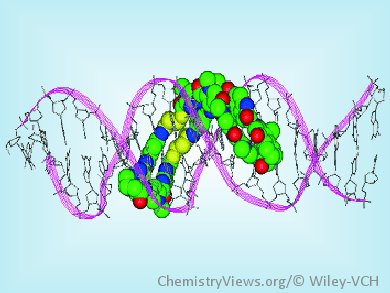DNA mutations and epigenetic modifications are attractive to researchers as important targets for anticancer agents. Anticancer drugs, such as cisplatin, mitomycin C, and chlorambucil, which covalently bond to DNA, are used routinely in cancer treatment. However, the strong toxicity of these drugs induces severe adverse effects.
The introduction of sequence specificity to cancer-induced mutated gene sequences may improve their anticancer activity. Mutation of the Kras gene is a key step in many cancers and one of the most frequently activated oncogenes, with point mutations often occurring at codons 12, 13, and 61, making these mutations attractive targets for potential anticancer drugs.
Toshikazu Bando, Hiroshi Sugiyama, and co-workers, Kyoto University, Japan, have investigated the sequence-specific alkylating activity of polyamide-seco-1,2,9,9a-tetrahydrocyclopropa[1,2-c]benz[1,2-e]indol-4-one (polyamide-seco-CBI) conjugates that alkylated the codon 13 mutation region in the coding region of the Kras gene.
Two of the polyamide-seco-CBI conjugates showed selectivity and alkylated the template strand of the coding region of the codon 13 mutation, with one showing potent specific alkylation activity for the codon 13 mutation, which was more efficient than for the other polyamide conjugates.
This method could be used for specific cancer chemotherapy and may be a promising approach to overcome the problem of drug-resistance and side effects in cancer treatments.
- Sequence-Specific DNA Alkylation Targeting for Kras Codon 13 Mutation by Pyrrole–Imidazole Polyamide seco-CBI Conjugates,
Rhys Dylan Taylor, Sefan Asamitsu, Tomohiro Takenaka, Makoto Yamamoto, Kaori Hashiya, Yusuke Kawamoto, Toshikazu Bando, Hiroki Nagase, Hiroshi Sugiyama,
Chem. Eur. J. 2014.
DOI: 10.1002/chem.201303295



